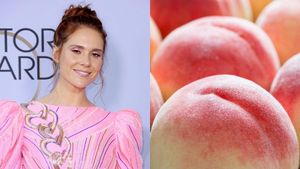The head of Fast Retailing, the company behind the global fashion powerhouse Uniqlo, has publicly stated for the first time its commitment to not using cotton sourced from China's Xinjiang region, where allegations of forced labor involving the Uyghur Muslim minority have surfaced. Tadashi Yanai, the richest man in Japan and chief executive officer of Fast Retailing, made this declaration during an interview with the BBC, emphasizing the company's efforts to be more transparent about its materials sourcing and manufacturing practices.
Previously, Yanai had been reticent, avoiding direct comments on whether Uniqlo utilized Xinjiang cotton, asserting his desire to maintain neutrality amid rising tensions between the U.S. and China. His earlier approach allowed Uniqlo to maintain its favorable standing within China's retail market, which is pivotal for the brand due to its massive customer base and manufacturing presence.
"We're not using cotton from Xinjiang," Yanai affirmed during the interview held in Tokyo, where he discussed the company's strategies going forward. Despite his insistence on transparency, he paused before adding, "Actually, it gets too political if I say anymore so let's stop here." This comment reflects the challenging geopolitical climate surrounding the trade of goods related to Xinjiang cotton.
Over the years, cotton from Xinjiang was prized as some of the finest fabric available globally. Yet, following revelations about the alleged forced labor practices implemented there, it has fallen out of favor. The U.S. led the charge, enacting strict import regulations on goods originating from the region, compelling numerous global brands to sever ties with Xinjiang cotton.
Corporate giants such as H&M, Nike, Adidas, and Burberry faced substantial backlash from Chinese consumers after taking this stand. H&M, for one, saw its products removed from key e-commerce platforms across China, illustrating the risks brands face when confronting political and human rights issues. Yanai's previous avoidance of a clear position helped steer Uniqlo clear of this backlash, but now, he must navigate the repercussions of clarifying the company's stance.
While Uniqlo is actively pushing its expansion globally, Yanai insisted on its Asian roots, declaring, "We are not a known brand globally." He pointed out the potential for substantial growth within China, citing the country’s population of 1.4 billion people and expressing confidence to triple Uniqlo stores from approximately 1,000 to 3,000.
Reflecting on the company's supply chain, Yanai acknowledged the challenges of replicability beyond China, which currently serves as Uniqlo's most significant manufacturing hub. Other countries like India, Indonesia, Bangladesh, and Vietnam are also part of Uniqlo’s supply chain but replicability has historically been difficult due to years of honing skills and manufacturing practices unique to China.
The fashion retail sector faces mounting pressure as well from rapidly-evolving competitors like Shein and Temu, known for their ultra-fast fashion business models. Reflecting on this, Yanai stated, "I don’t think there’s a future for fast fashion. They’re producing clothes without any careful consideration and which you only wear for one season; that's wasteful of the planet's resources." Instead, he advocates for foundational wardrobe pieces intended for long-term wear.
Tadashi Yanai’s ambitions are hefty; not only does he wish to upscale Uniqlo's reach and solidify its position, but he also aims to surpass Inditex, the company behind Zara, to stake claim as the world’s largest fashion retailer before his retirement. His vision is impressive but requires strategic handling of the company's reputation, particularly as global awareness mounts for human rights and ethical production practices.
With these clear statements, Uniqlo’s future now hinges on balancing customer expectations for ethical sourcing against its aggressive growth aspirations, particularly amid the intricacies of international politics and consumer sentiment.



